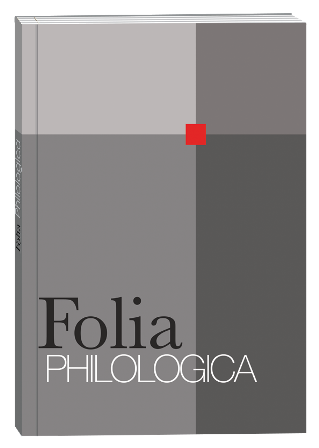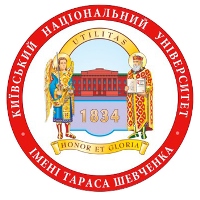RUSSIAN SOLDIERS IN THE CORPUS OF THE CONTEMPORARY LITHUANIAN LANGUAGE
DOI:
https://doi.org/10.17721/folia.philologica/2021/1/2Keywords:
cognitive ethnolinguistics, semantics, concept of RUSSIAN SOLDIER, cognitive definition, Lithuanian languageAbstract
The article deals with what publicist discourse on the late-20th century has to say about soldiers of Russian origin and the extent to which the formation and assessment of this concept has been affected by the historical, political, and ideological context. Material for this study was gathered in the Corpus of the contemporary Lithuanian language: a total of about 400 sentences that mention Russian soldiers. The aim of the article is to analyse the most typical attributes of the concept of RUSSIAN SOLDIER and the potential cognitive definition of the Russian soldier in reliance on the late-20th century publicist discourse. Scientific novelty. Scholars have not yet been drawn to study the image of the Russian soldier in the Lithuanian language and it‘s worldviews; therefore, it is meaningful to formulate the concept of the RUSSIAN SOLDIER on the basis of the analysis of opinion journalism texts; it is interesting to see how Lithuanian consciousness perceives the Russian soldier today. A semantic analysis has clearly revealed that the Russian soldier carries a strong emotional charge in nearly all of the sentences selected for the study and has a negative connotation in publicist texts as often as not. In conclusion, the following cognitive definition is formulated: the Russian soldier is fierce, cruel, impolite, a lout who has no understanding of the traditional Lithuanian values, often ravaging them barbarically. He has no mercy for his enemies and the civilian residents of the lands he has invaded alike, gunning them down, torturing and raping them; he is often a marauder and a drunk, swapping different things, weapons and such for vodka only to become even more brutal when drunk. He has no respect for the living or the dead and feels he is the true master of the occupied lands. So, for all practical purposes, between the 17th century and the late 20th century the image of the Russian soldier had been encoded with negative information. This can be said of both personal recollections and collective memory alike. It should nevertheless be noted that such an image of the Russian soldier is prompted by the texts of opinion journalism of the late 20th century only. The analysis of the opinion journalism of the 1940s–1970s would bring up an absolutely different definition of the Russian soldier, because the evaluation and image of this figure in peopleʼs consciousness is highly dependent on the political and historical context.
References
Antanaitytė I. (2016). Tarp lietuvininko ir vokiečio: imagologinis romano „Vilius Karalius“ „perskaitymas“ [Between the German and Minor Lithuanian: the perusal of “Vilius Karalius” novel from imagological perspective]. Res Humanitariae. 19, 11–23 [in Lithuanian].
Antanaitytė I. (2018). The representation of nations and the atitute towards the other in 20–21st century Lithuanian literature on East Prussia. Summary of doctoral disertation. 2018. Kaunas: VDU [in English].
Arlauskaitė I., Kšanytė-Armstrong R. (2007). Okupacinė kariuomenė Lietuvoje [Theoccupation army in Lithuania]. Vilnius: Versus aureus [in Lithuanian].
Bartmiński J. (2007). Językowe podstawy obrazu świata [The linguistic foundations of worldviews]. Lublin: Wydawnictwo UMCS [in Polish].
Geeraerts D. (1989). Prospects and Problems of Prototype Theory. Linguistics. 27 (4), 141–165 [in English].
Gries Th. S. (2006). Corpus-based methods and cognitive semantics: The many senses of to run. Corpora in cognitive linguistics. Corpus-based approaches to syntax and lexis. Berlin. New York – Mouton de Gruyter. 57–99 [in English].
Gudavičius A. (2009). Etnolingvistika [Anthropological linguistics]. Šiauliai: Šiaulių universitetas [in Lithuanian].
Gudavičius A. (2011). Reikšmė – sąvoka – konceptas ir prasmė [Meaning – notion – concept and sense]. Res Humanitariae. 10, 108–119 [in Lithuanian].
Jakaitienė E. (1988). Leksinė semantika[Lexical semantics]. Vilnius: Mokslas [in Lithuanian].
Jakaitienė E. (2010). Leksikologija [Lexicology]. Vilnius: Vilniaus universiteto leidykla [in English].
Macijauskaitė I. (2000). Dvi antonimų poros: mirtis–gimimas, mirtis–gyvenimas [The pairs of antonyms: death- birth, death- life]. Darbai ir dienos – Deeds and Days. 2, 121–142 [in Lithuanian].
Marcinkevičienė R.(1999). Atminties labirintuose. Kognityvinės ir tekstynų lingvistikos sąveika [Metaphors from collocations: how to link cognitive and corpus linguistics]. Darbai ir dienos – Deeds and Days. 10 (9), 109–124[in Lithuanian].
Marcinkevičienė R. (2000). Tekstynų lingvistika (teorija ir praktika) [Corpus linguistics in theory and practice]. Darbai ir dienos – Deeds and Days. 24, 7–64 [in Lithuanian].
McEnery T., Wilson A. (2001). Corpora linguistics. An indroduction. Edinburgh: Edinburgh university press [in English].
Papaurėlytė S. (2003). Sielvarto metaforos lietuvių ir rusų kalbose [Conceptual metaphors of sorrow in Russian and Lithuanian]. Filologija – Philology. 8, 25–31 [in Lithuanian].
Papaurėlytė-Klovienė S. (2007). Lingvistinės kultūrologijos bruožai [Features of linguistic culturology]. Šiauliai: VšĮ Šiaulių universiteto leidykla [in Lithuanian].
Pleshakov C. Stalin‘s folly: the tragic first ten days of World War II on the Eastern front. Boston: Houghton Mifflin [in English].
Rees L. (1999). War of the entury: When Hitler fought Stalin. New York: New Press [in English].
Rutkovska K., Smetona M., Smetonienė I. (2017). Vertybės lietuvio pasaulėvaizdyje [Values in the Lithuanian worldview]. Vilnius: Akademinė leidyba [in Lithuanian].
Schrad M. L. (2016). Vodkos imperija: alkoholis, valdžia ir politika Rusijoje [Vodka politics: alcohol, autocracy, and the secret history of the Russian State]. Vilnius: Briedis [in Lithuanian].
Scott M., Tribble Ch. (2006). Textual patterns. Key words and corpus analyses in language education. Amsterdam: John Benjamins publishing [in English].
Smetona M. (2018). Sąvokų „KALBA“, „TAUTA“, „VALSTYBĖ“ plėtiniai jaunimo sąmonėje [Expansion of concepts “Language”, “Nation”, “State” – in the consciousness of young people]. Logos. 95, 177–184 [in Lithuanian].
Ungerer F., Schmid H. J. (2006). An introduction to cognitive linguistics. 2nd edition, London: Longman [in English].
Williams R. (2013). A vocabulary of culture and society. London: Routledge [in English].
Vitkus H. (2017). „Die Russen in Ostpreussen“: Rusijos ir rusų įvaizdžiai 1914–1939 m. Vokietijoje publikuotuose atsiminimuose apie Didįjį karą Rytų Prūsijoje [“Die Russen in Ostpreussen“: Images of Russia and Russians in the memoirs on the Great War in East Prussia, published in Germany from 1914 to 1939]. Darbai ir dienos – Deeds and Days. 67, 31–67 [in Lithuanian].









